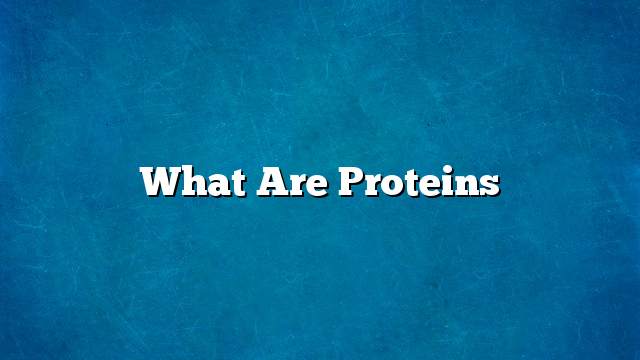Proteins
Protein is an organically complex compound with a high molecular weight composed of amino acids bound by the peptide bond with each other. It is necessary in the structure and function of all living cells, including viruses.
The enzymes are made up of proteins and the latter are also the protein units involved in the synthesis of enzymes. Protein has structural or mechanical roles. It forms the stents and joints of the cellular structure. It also carries out other vital functions: being an important member of the immune response, transport and storage of biomolecules, A source of amino acids for organisms that can not produce these amino acids themselves.
Types and sources of protein
Sources of protein
- Meat proteins: It provides the body with all kinds of amino acids, namely meat, fish and poultry, as the large egg contains six grams of protein, and contains 85 grams of beef on 23 grams of protein, and 83 grams of skinny chicken breast contains 24 grams of Protein. Salmon contains 83 grams of protein and 23 grams of protein. The same amount of tuna contains 22 grams of protein.
- Plant proteins: Is less useful since each plant has special types of amino acids, and contains grains such as lentils and nuts. It contains 30 grams of peanut butter, nine grams of protein, 60 grams of different nuts contains six grams of it, Pumpkin is rich in iron, magnesium and zinc along with protein, 28 grams of which contains five grams of protein, as well as flaxseed and shea seeds.
Types of protein
- Simple proteins: Are hydrolyzed, and amino acids are in good proportion, and are found in eggs and corn oil.
- Compound proteins: Is a combination of a nutrient or inorganic molecules with proteins.
- Proteins derived: In which the protein breaks down when exposed to heat to derivatives containing each of the molecules of amino acids.
The body needs protein
The average person needs a gram of protein per kilogram of his body daily. Athletes need twice that amount; it is necessary to build and regenerate muscle cells.
Symptoms of protein deficiency
In adults
- Rapid loss of weight.
- Fatigue and tiredness.
- Anxiety.
- Low body resistance to diseases.
In children
- Slow down sleep.
- Diarrhea.
- Liver infections and tumors if this deficiency persists.
